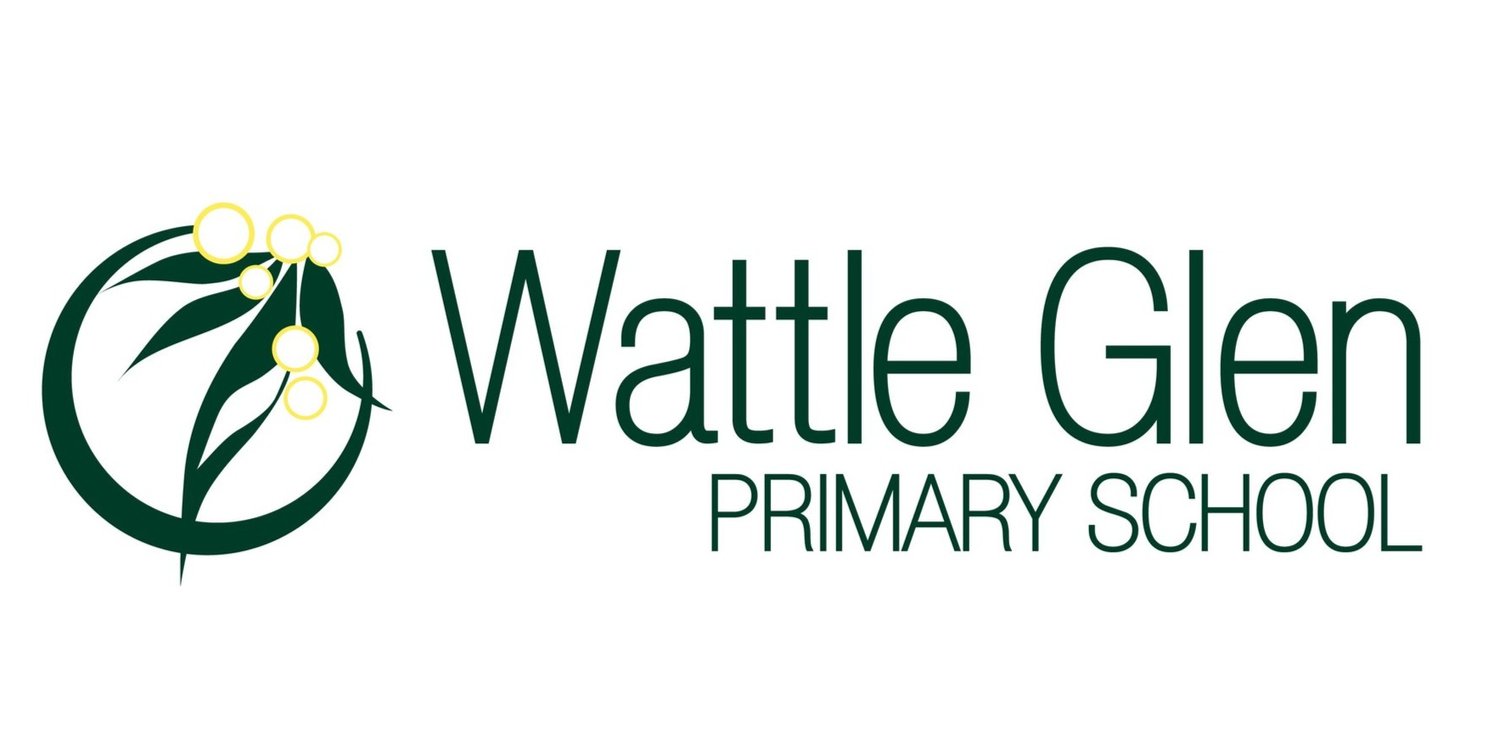
The Wattle Glen Way
Kindness, Curiosity, Respect, Resilience
We asked our students, parents and staff to explain how they can demonstrate The Wattle Glen Way.
Here are the responses from each different perspective.
Kindness
For students
Being gentle and considerate of ourselves and others.
For parents
Looking out for each other and including everyone.
For staff
Being a genuine and supportive person who is inclusive, maintains confidentiality and understands that everyone has a point of view and this can be influenced by the background of others.
+ Students demonstrate Kindness by:
- Sharing
- Caring for others
- Listening to others
- Making eye contact when people are talking to you
- Making friends and being friends
- Including others
- Helping others if they need help
- Saying kind things
- Welcoming others
- Giving second chances
- Being grateful for what you have
- Demonstrating positivity
- Checking in on others
+ Parents demonstrate Kindness by:
- Including everyone
- Going out of your way to do something nice
- Sticking up for people
- Using words positively to bind and support
- Learning about how our actions can positively affect others
- Being kind to ourselves is important too
- Being nice to each other, showing empathy and respect
+ Staff demonstrate Kindness by:
- Using appropriate language
- Caring
- Sharing
- Giving and receiving compliments (PATHS, actions as well as words)
- Showing others, teaching others
- Treating others fairly
- Demonstrating good manners
- Being helpful
- Being a good listener
- Showing engaging body language (active listening, making eye contact)
- Being sustainable
Curiosity
For students
A strong desire to know or learn something
For parents
Wanting to explore and know more
For staff
Being creative, thinking outside the square and encouraging a mindset that mistakes are okay.
+ Students demonstrate Curiosity by:
- Being creative
- Trying new things
- Showing passion
- Thinking
Talking
Investigating
Exploring
Questioning
Wondering
Having an open mind
Finding out
Discovering
Being adventurous
Thinking outside the box
+ Parents promote Curiosity by:
Encourage their to learn,
Allow children to learn through play,
Being curious and open-minded when it comes to interpersonal relationships between everyone
Trying new strategies, being creative and flexible
Exploring, wanting to understand, wanting to know more
Thinking outside the box.
Being an active learner and inquirer
Thinking independently
+ Staff demonstrate Curiosity by:
Being open to learning
Questioning
Finding solutions
Encouraging persistence
Trying new things
Probing
Encouraging an interest in a variety of things
Collaborating
Taking on feedback
Getting out of your comfort zone
Challenging yourself
Learning from mistakes
Integrating curriculum
Respect
Students
A way of treating or thinking about something or someone fairly
Parents
Treating others how you wish to be treated
Staff
Demonstrating care and compassion to all people, places and property.
+ Students demonstrate Respect by:
Treating other people with care and compassion
Treating things carefully
Showing admiration
Listening to others
Being polite
Following the rules
Looking after the school
Not interrupting
Doing what you are asked the first time
+ Parents demonstrate Respect by:
Treating others as you would wish to be treated
Acknowledging the equal importance of the community- Students, teachers and parents
Recognising students, teachers, team members and parents for their differences
Promoting pride in the school uniform, shaping our behaviour to show we care for ourselves, others, our school and the wider community.
Treating others how I like to be treated
Showing pride in your school
Including everyone
Showing high regards for staff members
Recognising the importance of educational, social and emotional development
Mutually acknowledging the role of staff, students and parents
+ Staff demonstrate Respect by:
To colleagues:
Listening actively in meetings
Being friendly
Being courteous
Supporting each other
Demonstrating integrity
Sharing ideas
Encouraging
Giving and receiving constructive feedback/ criticism
To parents:
Acknowledging them as the most important person in their child’s life, talk and provide regular feedback
Speaking “clearly”, using language everyone can understand
Promoting and encouraging respectful protocols
Listening
To students:
Being inclusive, making every student feel valued and important so the lessons cater to the needs of every student
Acknowledging they have different backgrounds and experiences
Being consistent
Using an appropriate tone of voice
Choosing child friendly words
Acknowledging their experience / points of view
Demonstrating appropriate body language
Resilience
Students
Believing in yourself, not giving up
Parents
Bouncing back and being able to handle disappointments
Staff
The ability to cope and thrive in the face of negative events, challenges or adversity
+ Students demonstrate Resilience by:
Knowing it is ok to make mistakes
Giving everything a go
Having a positive attitude
Trying something new
Being confident
Trying your best
Being a good sport
Persevering
Being patient
Giving personal space
+ Parents demonstrate Resilience by:
Bouncing back from adversity
Having the ability to work through difficult situations
Adapting to change in a changing world
Handling disappointments
Being able to overcome obstacles and keep going.
Never giving up
Encouraging everyone to try their best
+ Staff demonstrate Resilience by:
Bouncing back when something goes wrong
Not holding a grudge
Recognising the positives
Showing good sportspersonship
Acknowledging feelings when defeated
Celebrating success of yourself and others
Being mindful of others, their thoughts, ideas and feelings
Giving and receiving feedback as a means to next steps
Acknowledging different points of view
Using mistakes as a learning experience
Encouraging persistence
Accepting feedback and acting on it
Being mindful





